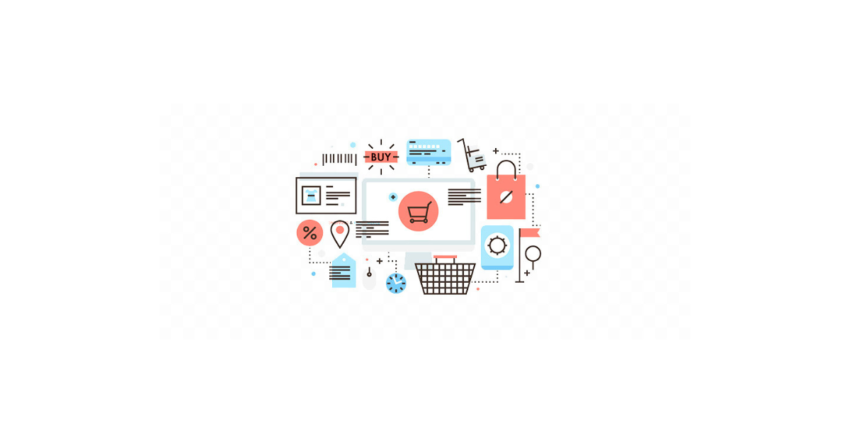A Comprehensive Comparison of Ecommerce Platforms for Indian Ecommerce Development
Introduction
As India continues to witness a surge in online retail, choosing the right ecommerce platform becomes a critical decision for businesses seeking to establish a robust digital presence. This article provides an in-depth comparison of popular ecommerce platforms, offering insights into their features, scalability, and suitability for the dynamic Indian market. Whether you are a budding entrepreneur or an established business, this guide aims to assist you in making an informed decision tailored to your specific e commerce needs.
1. Magento :
– Open-Source Flexibility : Magento is renowned for its open-source nature, providing flexibility for customization.
– Scalability : Well-suited for businesses of all sizes, from startups to large enterprises.
– Multi-Store Functionality : Ideal for businesses managing multiple online stores.
– Community Support : A robust community that contributes to ongoing improvements and support.
2. Shopify :
– User-Friendly : Known for its ease of use, making it suitable for beginners.
– Hosted Solution : Shopify offers a hosted solution, minimizing technical complexities.
– App Store : Extensive app store for adding functionalities and features.
– Payment Gateways : Seamless integration with multiple payment gateways.
3. WooCommerce :
– WordPress Integration : Built as a WordPress plugin, ideal for businesses with WordPress-based websites.
– Customization : Offers extensive customization options through WordPress themes and plugins.
– SEO-Friendly : Provides robust SEO features for improved online visibility.
– Community Support : Benefits from the vast WordPress community for support.
4. BigCommerce :
– Built-In Features : Comes with a variety of built-in features, reducing the reliance on third-party apps.
– Scalability : Suitable for growing businesses with its scalability options.
– Security : Focuses on security, with features like SSL certificates.
– Multi-Channel Selling : Allows selling across various channels like Facebook and Instagram.
5. Wix eCommerce :
– Drag-and-Drop Builder : Wix’s renowned drag-and-drop builder for easy website creation.
– Affordability : Cost-effective solution for small to medium-sized businesses.
– Templates : Offers a variety of visually appealing templates for ecommerce websites.
– Artificial Design Intelligence (ADI) : Utilizes ADI to create personalized online stores.
6. PrestaShop :
– Open-Source : PrestaShop is an open-source platform, allowing extensive customization.
– Internationalization : Ideal for businesses targeting an international audience.
– Community Support : Benefits from an active community for troubleshooting and improvements.
– Responsive Design : Ensures responsiveness across various devices.
Importantly, consider to connect with check ecommerce development India to know more
7. OpenCart :
– User-Friendly : Known for its user-friendly interface, suitable for beginners.
– Extensions : Offers a range of extensions to enhance functionality.
– Multi-Store Functionality : Allows managing multiple stores from a single admin interface.
– Cost-Effective : An affordable solution for startups and small businesses.
8. Zoho Commerce :
– Integrated Solution : Part of the Zoho suite, enabling seamless integration with other Zoho apps.
– Advanced Analytics : Provides advanced analytics for data-driven decision-making.
– Automation : Offers automation features for streamlined operations.
– Mobile Responsiveness : Ensures a mobile-responsive design for diverse user experiences.
Choosing the Right Platform for Your Indian Ecommerce Venture :
– Consider Your Business Size : Magento and BigCommerce are scalable for larger enterprises, while Wix and Shopify cater to small to medium-sized businesses.
– Ease of Use : Shopify and Wix are user-friendly, making them ideal for beginners, whereas Magento may require a learning curve.
– Budget Constraints : OpenCart and WooCommerce are cost-effective solutions suitable for startups, while Magento and Shopify may involve higher initial costs.
– International Presence : PrestaShop and Magento are renowned for internationalization, making them suitable for businesses with a global focus.
Conclusion
Selecting the right ecommerce platform is a pivotal decision that can significantly impact the success of your online venture. By carefully considering factors such as scalability, ease of use, budget, and target audience, businesses in India can make informed choices aligned with their specific requirements. Whether you opt for the flexibility of Magento, the user-friendliness of Shopify, or the affordability of OpenCart, the key is to choose a platform that aligns seamlessly with your business goals and the dynamic landscape of the Indian ecommerce market.

